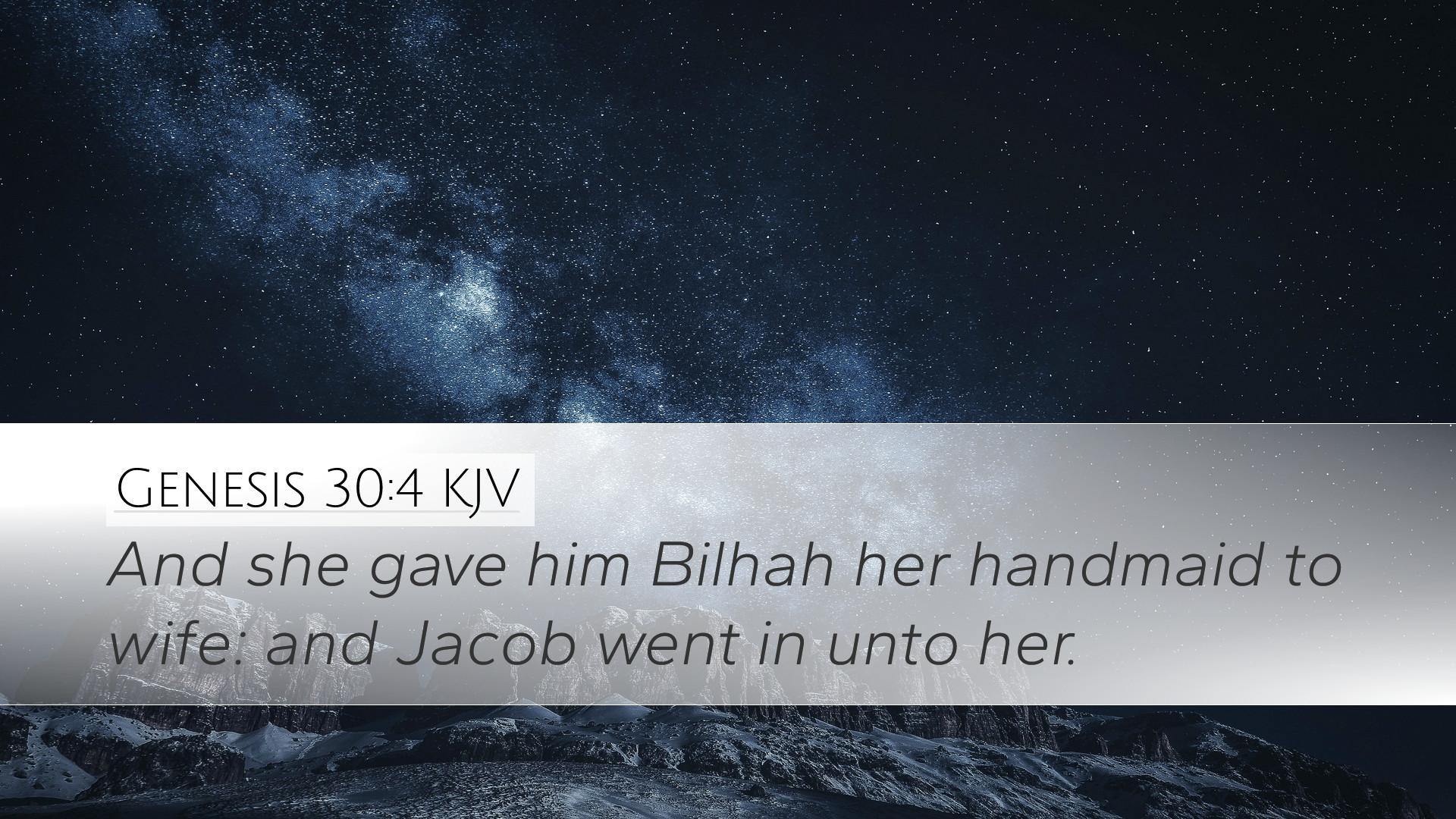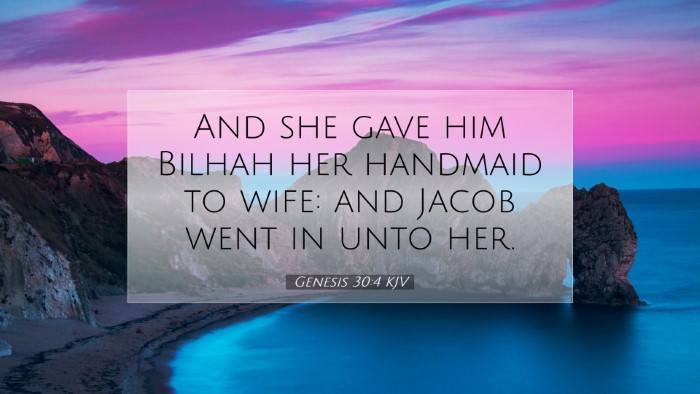Commentary on Genesis 30:4
Verse Breakdown
“And she gave him Bilhah her handmaid to wife: and Jacob went in unto her.”
Contextual Overview
This verse is pivotal in the narrative of Jacob, Rachel, and Leah, set against a backdrop of familial strife and competition for the affection of Jacob. Rachel, desiring children, offers her maidservant to Jacob as a concubine to bear children on her behalf, an act rooted in cultural practices of the time.
Insights from Commentary
- Matthew Henry emphasizes the desperation of Rachel as she grapples with her barrenness. He posits that using Bilhah reflects Rachel's limited faith in God's ability to bless her with children and suggests a reliance on human mechanisms. This reflects our human tendency to take control when we feel God is delayed in His promises.
- Albert Barnes notes the significance of the handmaid's role in the family structure of that era. He remarks that Bilhah's introduction into the home was a cultural norm symbolizing surrogate motherhood, reflecting the complexities of familial relationships. Barnes indicates that these actions ultimately lead to strife within the household, as the competition for Jacob's love intensifies.
- Adam Clarke delves into the implications of Jacob's polygamous relationships. He raises questions about the morality of these actions and underscores the ethical dilemmas faced by biblical figures. Clarke highlights that these relationships, while culturally accepted, eventually lead to social discord and familial tensions.
Theological Reflection
This passage invites deep theological reflection regarding God's sovereignty in human affairs. Despite the flawed actions of Rachel and Jacob, God's overarching plan for the Israelite nation continues to unfold. It serves as a reminder that human shortcomings do not thwart divine purposes.
Pastoral Applications
- As pastors, we can use this text to illustrate the consequences of distrust in God's timing. Rachel's decision to act on her impatience serves as a cautionary tale for believers today who may also struggle with waiting on the Lord.
- This verse also opens discussions on the complexity of family dynamics. Pastoral counseling can benefit from exploring how cultural practices have changed and how modern believers can support one another in their family relationships.
- Furthermore, we can encourage congregants by pointing to God’s faithfulness amid human flaws. God’s plan persisted despite the tumultuous family dynamics, highlighting that His purposes will prevail regardless of our failings.
Conclusion
Genesis 30:4 provides a lens into the intricate web of relationships and societal norms of ancient cultures. By reflecting on the insights from Matthew Henry, Albert Barnes, and Adam Clarke, we gain a multifaceted understanding of the text that is beneficial for pastoral teaching and individual study. This verse illustrates profound themes of desperation, human agency, and divine sovereignty, offering timeless lessons for the community of faith.


